Wolseley has decided that the best way to market its sustainable products is to build a showroom out of them. But how well does the idea stand up?
Specifiers, by their nature, love to shop. The trouble is that, over the past five years or so, they’ve become increasingly uncertain what they ought to be buying. The sustainability agenda has unleashed a vast number of products onto the market, but it takes a seriously dedicated shopper to travel to all the manufacturers in the UK and abroad to work out which ones they should be splashing their cash on.
Now materials giant Wolseley thinks it has an answer. In deepest Leamington Spa, it has built the Sustainable Building Center (SBC), using many of its own range of 7,000 eco products. Part Ikea showroom, part exemplar building, the idea is that specifiers can see the products in action and get all the information they need with one port of call.
Even though it doesn’t open until next month, the centre has caused something of a stir in construction circles, and many of the industry’s biggest spenders have already visited. So we decided get an impartial view by sending along an architect with a no-nonsense approach to assessing products. As technical director of Scott Brownrigg, Peter Caplehorn spends much of his working week looking into new products, understanding how they work and analysing the manufacturers’ claims. Only when he’s satisfied will he specify them on his own projects. So if the SBC is just an elaborate sales pitch, he’ll soon find out.
The concept
Caplehorn certainly seems impressed by the idea behind the centre. “Whenever I’m looking at products I might specify I like to go and look at them in use,” he says, “which usually means travelling around to several sites or even going abroad.”
Tim Pollard, Wolseley’s head of sustainability, is showing us around. Caplehorn asks what the criteria were for the products they offer. “A lot of the products existed, but they were on the fringes of the construction industry,” says Pollard. “If the environment was to become a big issue it required mainstreaming so that major housebuilders, developers, and public clients could access them in commercial timescales and in commercial quantities and prices.”
Caplehorn stresses the importance of having complete confidence in the products and manufacturers that he chooses. Pollard says that this is integral to the concept. Wolseley has spent the past three years building up the list of products, verifying manufacturers’ data, putting in place supply agreements, training staff in its outlets as well as producing a 150-page catalogue and building a dedicated website.
Caplehorn’s verdict 4/5
“Normally when I’m looking at a product I’ll assess it to make sure that it does what it says it will and also check out the track record of the manufacturer and supplier. In a way they have cut out that step. It’s also very rare that you get the opportunity to compare similar products all on the same site, so from that point of view it’s fantastically powerful.”
Presentation
The tour starts off on the ground floor. Caplehorn is interested to know what the architectural goals were when project architect ECD was given the brief. “They made it clear that the centre should not look like an industrial or commercial building,” says ECD’s Mark Elton, who’s also joined us. “At the time we didn’t know what products would be going into it.”
“It would have been easy to come up with a building that just looked like a sample board of products and materials,” says Caplehorn, with his architect’s hat on.
Visitors enter through some weighty double doors into a full-height, glazed “street”. This is the buffer zone between the heavyweight building on the right, housing the main display areas, and the lightweight structure on the left which includes a lecture theatre, offices and a cafe. “It shows people the sort of approaches they can take,” says Elton.
Caplehorn asks about energy monitoring. Pollard explains that a full energy management system has been installed to show visitors how the equipment and the various areas of the building perform.
Everything that can be seen at the SBC can be bought, from the fired clay blocks and Thermowood cladding to the LED uplighters, guttering and downpipes.
More fringe materials, such as earth-rammed or straw-bale walls weren’t used for the simple reason that Wolseley doesn’t sell them, says Elton.
Cutaways reveal the three types of insulation used and the underfloor heating system. Caplehorn seems pleased that so many systems and structures are left exposed. “You get a lot of people who want underfloor heating and there are one or two things they don’t get: one is that the floor will get hot and the other is you’ll have a huge load of pipes coming up through the floor which you have to co-ordinate and which must go somewhere. If they see this they’ll be able to understand it.”
It would have been easy to come up with a building that just looked like a sample board of products
Peter Caplehorn, Scott Brownrigg
Nothing in the building is just for show. The three heating sources – a combi boiler, biomass boiler and ground-source heat pump are all fully functional, as are the two solar thermal systems and PV arrays.
Caplehorn’s verdict 4/5
“It would have been easy to create a patchwork building with no integrity, or something that included the bells and whistles but has no real focus. As it is they have achieved a good balance. The building has a nice character, which introduces you in a gentle manner to the technologies that are available. It’s also a functional building, a good place for demos and a good focus for people to talk about sustainability.”
Range of products
The SBC offers customers a sustainable alternative for every stage of construction, which was the reason the products were chosen. This covers everything from substructure and wall construction to heating and ventilation and renewables.
Technologies on show in the centre will be updated as products come to market. Already there are plans for a domestic air-source heat pump.
What about micro wind turbines, asks Caplehorn – these don’t appear in Wolseley’s catalogue. Pollard and Elton don’t think they are a worthwhile investment but are still going ahead with one. “We’re going through the planning rigmarole at the moment,” says Elton. “At least when if one is installed people will be able to see for themselves the performance characteristics.”
Caplehorn’s verdict 3+1/2 / 5
“I’ve not seen any new technologies, but I have seen a few things that I had only read about, and ranges I didn’t know certain manufacturers did. They’ve concentrated on the territory of proven technologies, which fits with their strategy of only showcasing the ones that are commercially available. However, in terms of inspiring a designer the range is slightly limiting.”
Information
A visit to the SBC includes a guided tour and time to explore on your own. Every trip starts with a questionnaire asking what you’re interested in – if there are specific areas of interest the display area will be set up with extra information and samples to reflect this.
On arrival everyone is given a PIN which can be used at the information hubs dotted around the centre. By punching in their PIN into a touchscreen visitors can request more detailed installation and operational data on any of the products. These are emailed to them after the visit. “One of my big bugbears is that people are always trying to give you literature, which is hardly sustainable. What you really want is the information in electronic format,” says Caplehorn.
Also scattered around the centre are 21 small video screens mounted on stands, which give information on the products nearby and short videos of the installation.
Caplehorn’s verdict 4/5
“I’m not sure if the video screens really get the message across. They were quite small and I’m not sure whether they can hold people’s attention.
“The information hubs are a really good idea – although they did seem a bit tricky to use.”
Overall verdict 4/5
“It’s a great specifying tool. To be able to go to one centre and be able to see and touch products and form a comparative opinion with back-up data is a real step forward. And given the enormous range of sustainability products available they have limited themselves to a good selection that most buildings could use. There don’t seem to be any glaring omissions.
“It’s also quite inspiring for designers. I’d say it’s well worth the trip.”





















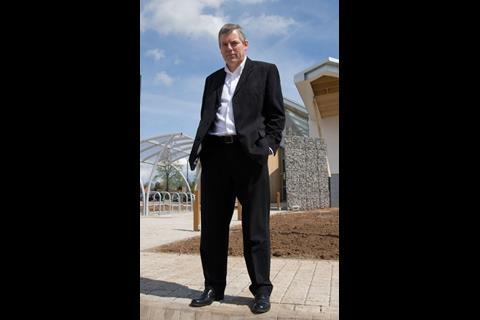
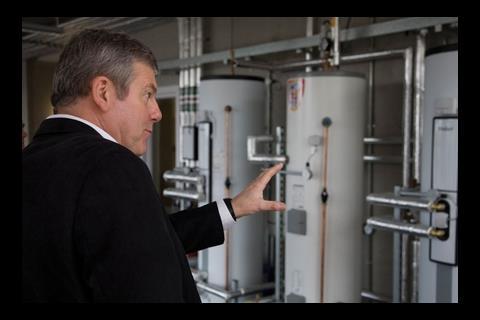
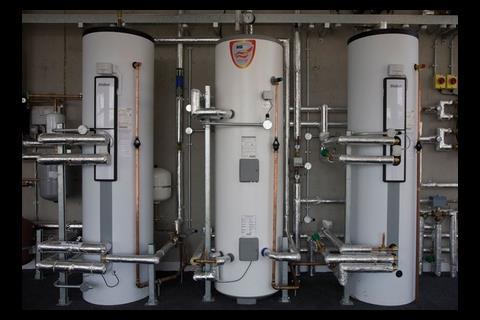
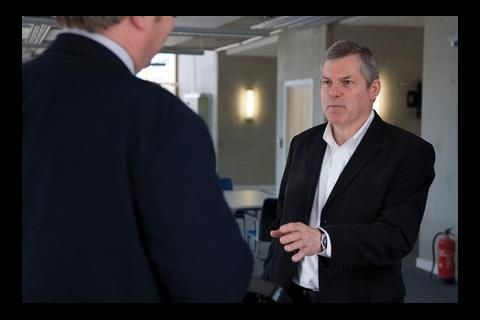
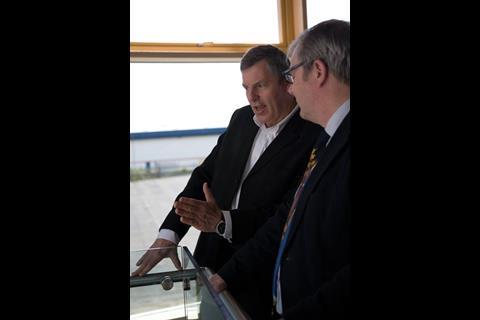
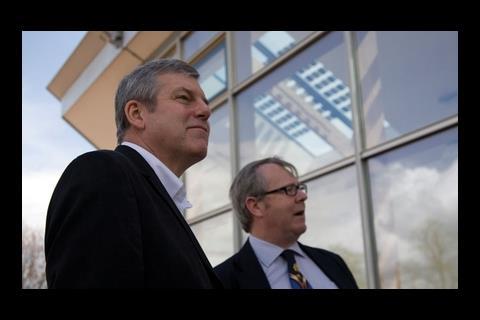
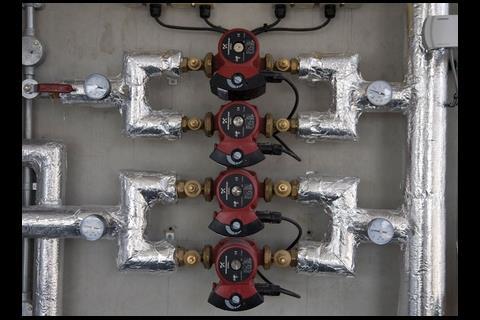
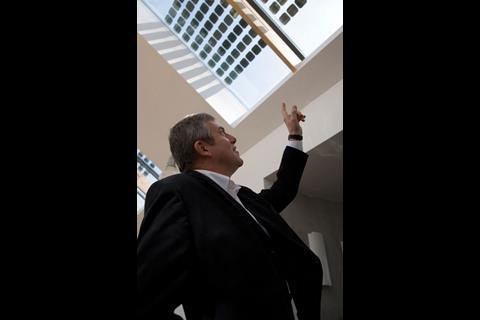
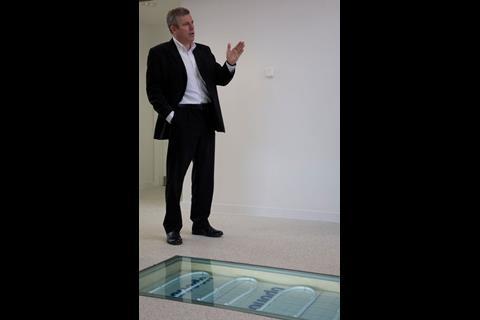
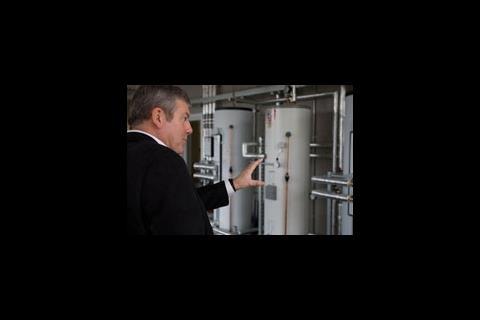







No comments yet